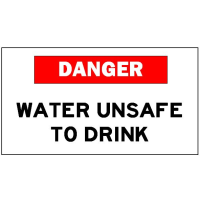Munitions Contractor Can Seek Site Cleanup Costs From Federal Government

By Elizabeth Warmerdam, Courthouse News Service
A defense contractor responsible for cleaning up pollution at a facility where most munitions manufacturing was done under contracts with the U.S. military can seek cost recovery from the government, the Ninth Circuit ruled Monday.
Whittaker Corporation manufactured and tested munitions for the government at a facility in Santa Clarita, Calif., for 20 years, according to court records. The site was previously owned by the Bermite Powder Company.
Between 1954, when Bermite was in charge, until 1987, when Whittaker ceased operations at the site, about 90% of the munitions manufacturing and testing at the site was done under contracts with the U.S. military.
In 2000, the Castaic Lake Water Agency and other providers who pumped water out of ground wells near the Bermite site filed a lawsuit against Whittaker under the Comprehensive Environmental Response, Compensation and Liability Act, or CERCLA. They claimed that Whittaker’s operations had contaminated their water supplies with a pollutant called perchlorate and other hazardous chemicals.
Whittaker and its insurers settled the case in 2007, agreeing to reimburse the water providers for costs they incurred removing the perchlorate pollution from their wells. Whittaker also agreed to purchase replacement water.
Although Whittaker was found liable for a specific set of the providers’ costs of responding to the defense contractor’s pollution, Whittaker was not ordered to clean up the Bermite site.
In 2013, Whittaker filed its own lawsuit under CERCLA, seeking recovery from the United States for expenses Whittaker incurred since the 1980s investigating and cleaning the Bermite site. Whittaker sought reimbursement of costs for soil sampling, excavations, surveys and remedial operations addressing solvents and heavy metals.
U.S. District Judge Fernando Olguin ruled (pdf) that Castaic Lake’s lawsuit against Whittaker precluded the defense contractor from bringing a CERCLA cost recovery against the United States. The judge said that Whittaker only had the right to seek reimbursement for paying more than its fair share in the Castaic Lake suit.
A three-judge panel of the Ninth Circuit reversed Olguin’s decision on Monday, finding that the expenses Whittaker seeks to recover from the government are separate from the expenses for which the defense contractor was found liable in the Castaic Lake case.
“Whittaker’s liability in a prior case did not limit it to seeking contribution for all of its expenses, so Whittaker may use a CERCLA cost recovery action to seek reimbursement for the cleanup costs at issue in this case,” Judge Mary Murguia wrote on behalf of the panel.
Although Whittaker’s right to bring a contribution claim was triggered by the Castaic Lake lawsuit, that did not require Whittaker to also bring a contribution action for costs for which it was not found liable in that lawsuit, the Ninth Circuit ruled.
“If the right to contribution were so broad, there would be no reason for courts to evaluate different sets of expenses separately in deciding whether a party has a contribution claim, yet evaluating expenses separately is precisely what courts have done,” Murguia said.
Congress did not intend for parties who have been sued in cost recovery actions to be forced to bring all of their own CERCLA claims in the form of a contribution action on an accelerated timeframe, Murguia wrote for the majority.
Judge John Owens dissented in part, finding that case law has drifted from what Congress intended when it passed and amended CERCLA in the 1980s.
“Requiring all related contribution claims to be ‘dealt with in a single action’ would ‘encourage private party settlements and cleanup’ because the threat of being sued ‘as a third-party defendant, concurrent with the original litigation, has the effect of bringing all such responsible parties to the bargaining table at an early date,’“ Owens wrote.
The judge added that the panel’s holding “permits adversaries to fight for generations over moldy leftover crumbs,” which is “(g)ood for lawyers, but bad for the environment and communities affected by the contamination.”
Whittaker’s attorney Kevin Fong and the U.S. Justice Department declined to comment on the ruling.
To Learn More:
Army Claims it’s too Dangerous to Clean Up Radioactive Weapons Test Site in Indiana (by Noel Brinkerhoff and Danny Biederman, AllGov)
State Official Says Groundwater Cleanup at Ex-Rocketdyne Site Could Take “Centuries” (by Ken Broder, AllGov California)
Owner of Biggest U.S. Coal Mine May Lack Insurance for Mine Cleanup, Dumping $1.4 Billion Risk onto Taxpayers (by Noel Brinkerhoff and Steve Straehley, AllGov)
- Top Stories
- Unusual News
- Where is the Money Going?
- Controversies
- U.S. and the World
- Appointments and Resignations
- Latest News
- Musk and Trump Fire Members of Congress
- Trump Calls for Violent Street Demonstrations Against Himself
- Trump Changes Name of Republican Party
- The 2024 Election By the Numbers
- Bashar al-Assad—The Fall of a Rabid AntiSemite






Comments